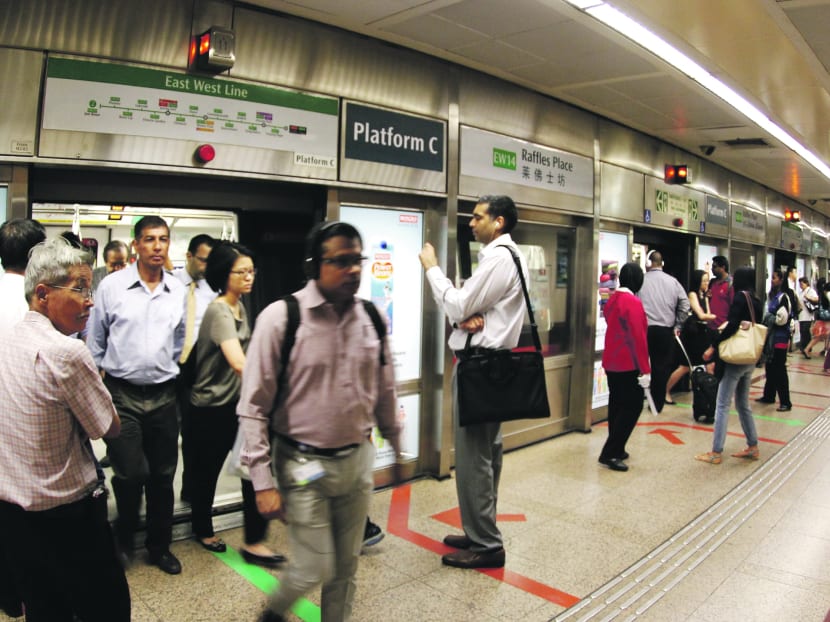Free early bird travel plan extended until June next year
SINGAPORE — The free early bird travel scheme will be extended for the second year running, following a “sustained reduction” of 7 to 8 per cent in the number of commuters during the morning peak period, the Land Transport Authority (LTA) said today (May 26).
SINGAPORE — The free early bird travel scheme will be extended for the second year running, following a “sustained reduction” of 7 to 8 per cent in the number of commuters during the morning peak period, the Land Transport Authority (LTA) said today (May 26).
The Free Pre-Peak Travel scheme, which was rolled out in June 2013, provides free train rides for commuters tapping out at 18 MRT stations before 7.45am. Those who exit the designated stations between 7.45am to 8am get 50 cents off their train fares.
LTA said that as a result of the scheme, which will be extended to June 30 next year, the morning rail ridership has become more evenly distributed. The ratio of morning peak to pre-peak travel, based on commuters exiting from the designated stations, has fallen from 2.7 : 1, stabilising at 2.1 :1.
Senior Minister of State (Transport) Josephine Teo described the scheme as an “important foundation” for other travel demand management efforts, such as the new off-peak travel passes to be introduced in July. “The proportion of commuters who have shifted their travel patterns due to (the scheme) is significant and has stabilised after two years...We hope that more people, who are able and willing to shift their travelling times, will benefit,” she said.
While the reduction is short of the 10 to 20 per cent shift that the authorities had initially hoped to see, transport experts TODAY spoke to felt that the scheme can be declared a success. Still, a more permanent solution is needed, they said.
Nanyang Technological University transport economist Walter Theseira felt that free pre-peak travel should be extended until improvements - more MRT lines and train upgrades - are introduced. Thereafter, different prices should be charged for off-peak and peak-hour travels - a common practice in other cities which will help spread out the demand, he said.
However, National University of Singapore (NUS) transport researcher Lee Der Horng felt that even without the scheme, commuters who have been changed their travel patterns will continue to travel in the pre-peak period because it has become a habit. “The idea was to provide an incentive for people to change their travel behaviour, and the 7 to 8 per cent reduction shows that this has been successful,” said Professor Lee. “The extended free travel period would help stabilise the numbers, but it is unlikely it will move much.”
Both Assistant Professor Theseira and Prof Lee reiterated that the situation will improve further if more companies adopt flexible working hours. “Most Government departments have led the way in terms of introducing workplace flexibility...but the private sector has not followed to the same extent,” said Asst Prof Theseia. “There may be various reason for the private companies’ hesitance - maybe they don’t know how it will affect productivity, or are unsure how to restructure their operations to allow for that.”
LTA said that so far, more than 50 organisations, with over 120,000 employees, have come on board the Travel Smart Network programme. Launched last July, the programme seeks to help companies create supportive environments for their employees. The programme includes a Travel Smart Grant of up to S$160,000 annually for three years to co-fund the cost of supporting flexi-travel arrangements for employees.







